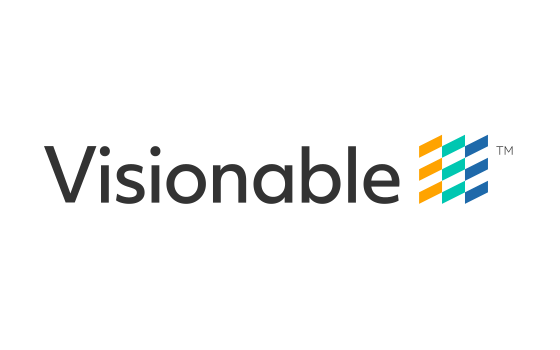 Opinion Article by Lord Victor Adebowale CBE, Chair and Co-Dounder of Visionable.
Opinion Article by Lord Victor Adebowale CBE, Chair and Co-Dounder of Visionable.Digital technology is the conduit to equal and equitable access to care. Get that right and we can ensure that the NHS is meeting the needs of all the population and not just those who are equipped to navigate the healthcare system.
The NHS was set up to provide high quality care for patients, free at the point of need. Yet sadly, the people who need health and social care the most are often least able to access this care and support. It should be an NHS priority to ensure everyone gets equal and equitable access to care no matter what their circumstances or where they are located - yet it is failing. It is failing in its mission and it is failing the people it serves.
So, how can technology help to solve this?
The pivotal role of technology in saving the NHS
Technology can connect clinicians and patients leading to better quality care and improved patient outcomes. This can be literal in that technology can facilitate contact when face-to-face contact isn't possible. For example, connecting GPs or specialist consultants with patients in remote locations or when home care is preferred.There are numerous use cases demonstrating how technology can improve care and at Visionable, we have many. For example, we have worked with His Majesty's Prison Service to virtually connect prisons to hospitals to ensure that prisoners receive the same healthcare and treatment as anyone outside of prison, as required by law. We have supported Southern Health NHS Foundation Trust - a provider of community health, mental health and learning disability services across Hampshire - to offer safe and secure video appointments giving choice and flexibility to its vulnerable patients and those with physical or mental health challenges.
Connected care
Visionable's digital healthcare collaboration platform can be used across numerous care pathways; from emergency response connecting front-line responders and members of public on scene to remote specialist clinicians, through to hospital treatment, including virtual consultations, multidisciplinary team (MDT) meetings and at-home care.There are many other examples of how technology suppliers are supporting equal and equitable access to care, which is fantastic. What is not fantastic, is the lack of consistency across the NHS meaning that patient experience, and more importantly, outcomes, can vary from area to area. Why? In my opinion, this is due to a lack of clear strategic direction at a national level to ensure effective knowledge transfer and for proven successes to be mirrored across the NHS.
Yes, there have been some significant gains in recent times. I often hear it quoted that during the pandemic the NHS achieved five years of digital transformation in as many months. But is this transformation meeting the strategic objectives of the wider healthcare system and the duty to provide equal and equitable access to care? No, not yet.
Clear national direction
I believe this is due to the tension between local decision making and national priorities and the process by which those national priorities become a reality. Take stroke for instance; NHS England announced stroke as a new national priority in the NHS Long Term Plan in 2019, yet there is still disparity in the quality of services across England. At Visionable, we have been working with the East of England Stroke Network for 10 years to improve services.We have also worked with the East of England Ambulance Service NHS Trust (EEAST) to introduce video conferencing technology to support registered paramedics with pre-hospital assessment of suspected stroke mimic patients. By collaborating with the local ambulance service, the team managed to reduce stroke mimic admissions by 87%, spotting the symptoms by way of a remote consultation at the patient's home.
Similar video conferencing technology has been used to enable skilled stroke consultants to interact with hospital base teams and patients to make informed decisions regarding delivering thrombolysis to patients with acute ischaemic stroke (AIS).
We have a proven track record in terms of reducing injury, improving clinical efficacy and efficiency, and yet as far as I'm aware, the East of England is the only place that is operating this model. If you have a stroke elsewhere in the country, you won’t get the best stroke care because that technology isn't available. Why is that if the evidence is there?
Seize the opportunities today to deliver for tomorrow
The government has recently published its G-Cloud 13 framework, in which Visionable is listed. It is intended to provide a centralised procurement framework for the provision of cloud products and services and to accelerate digital transformation. While this isn't a new initiative - the first G-Cloud framework was launched in 2012 - I'm hoping the recent change in pace in terms of digital transformation will see an uptick in the adoption of some of these proven cloud-based systems.And while I feel there is more that can be done on a national level, particularly when technology is proven to deliver improved outcomes for patients in priority areas, I am optimistic that this will come. It has to. We have to plan for the future, otherwise we are constantly stuck in the present and that's both exhausting and dangerous.
About Visionable
Visionable is a healthcare technology company, established in 2015, that provides a digital collaboration platform for clinicians to deliver better patient care. Designed by founders who have worked within the NHS and who continue to partner closely with NHS clinicians, the platform has been created to develop fit-for-purpose digital care pathways and virtual care consultations. Used by NHS hospitals and Trusts, Visionable has delivered and improved patient flow, facilitated quicker decision making and improved patient experience across multiple care settings and specialities such as stroke. This extends to patient consultations, remote diagnostics, telehealth solutions, multidisciplinary teams, virtual visits, and critical patient services.